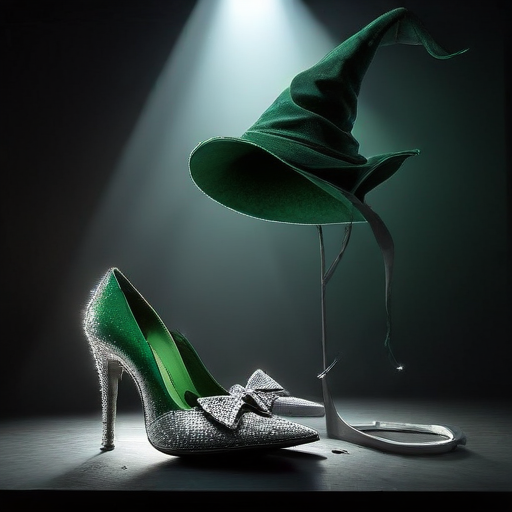Cynthia Erivo’s portrayal of Elphaba in the upcoming film adaptation of “Wicked” is breaking new ground with her distinctive micro-braided hairstyle, a departure from the iconic straight hair seen in the Broadway show. When Erivo was cast, her first request was to give Elphaba a textured hairstyle that resonates with her personal identity. “It connects to who I am underneath the skin,” Erivo explains, emphasizing the deep connection she feels with the character, who also faces the experience of being “othered.”
The creative process behind this iteration of Elphaba has been extensive, allowing Erivo to embrace her character physically and emotionally. She notes that her casting as the first full-time Black Elphaba on Broadway is significant, considering the historic context—Alexia Khadime is the only Black woman to have previously taken on the role in London. Erivo expresses her hope that her role in the film may inspire change in the industry, stating, “I hope that this shifts and changes things across stages.”
Cynthia Erivo, a talented actress and singer, has garnered numerous accolades throughout her career, including a Tony Award for her role in “The Color Purple.” Her success has paved the way for her transition to film, where she has received two Academy Award nominations for her performance in “Harriet.” As she continues her journey, Erivo is also focused on various other projects, including her second original album and her own production company.
Collaboration is a key theme in Erivo’s experience on “Wicked,” particularly her relationship with co-star Ariana Grande. Erivo describes their immediate connection and harmony in their performances, highlighting the importance of vulnerability in building genuine relationships.
Moreover, Erivo reflects on her identity as a queer woman of faith, articulating a broader and more inclusive understanding of spirituality that transcends restrictive interpretations. “Faith is so big—so much bigger than set rules,” she states emphatically, advocating for love and compassion as the central tenets of her beliefs.
The rigorous demands of portraying Elphaba, including the unique green makeup and performing her own stunts, require immense preparation and dedication from Erivo. She relishes the challenge and the opportunity to immerse herself fully in the character.
As she explores her artistic journey, Erivo remains committed to maintaining a balance in her life, emphasizing the importance of self-care by surrounding herself with supportive people and prioritizing activities that bring her joy.
In the end, Cynthia Erivo’s groundbreaking portrayal of Elphaba not only brings a fresh perspective to the character but also serves as a catalyst for representation and change in the entertainment industry. Her experiences and insights reflect a broader narrative of empowerment and resilience, illustrating that the arts can be a powerful platform for inclusion and understanding.
This hopeful narrative signifies a potential shift in the arts, as Erivo’s visibility and success may inspire future generations of artists to embrace their identities and create in a way that reflects the world more authentically.
